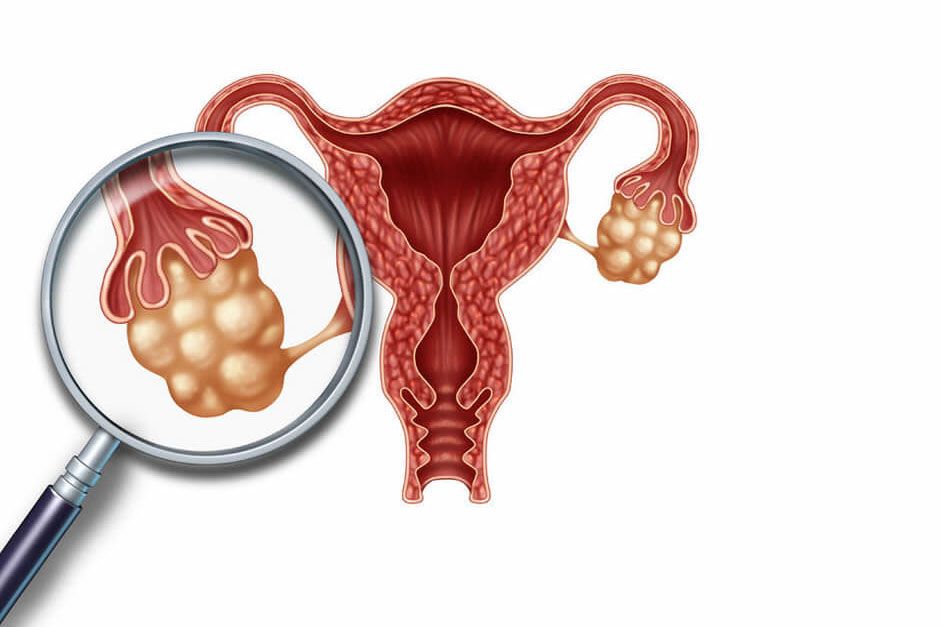Little girls turn into young ladies with the onset of their menstruation cycle- the age of fertility. But not everything goes hunky-dory during this period our life essentially gets ruled by erratic hormones. Polycystic Ovary Syndrome (PCOS) afflicts over 27% women globally, and in 70 percent of women, it doesn’t get detected until it gets too late or not at all.
In Polycystic Ovary Syndrome a woman’s body produces an increased amount of male hormone, androgen, and less amount of progesterone and estrogen since it affects a woman’s ovaries. In Polycystic Ovary Syndrome, follicles that contain immature eggs get filled with fluid-cysts-thus the eggs never mature to trigger ovulation. It leads to irregular menses and infertility.
Doctors and researchers haven’t been able to find the PCOS causes. Studies have shown that it may be related to genes-women with a family history of PCOS has a greater chance of being diagnosed with this syndrome. Also, obesity, insulin resistance, and inflammation can increase the level of androgen production in the body leading to Polycystic ovary syndrome.
All About PCOS:-
- Ways Polycystic Ovary Syndrome Disrupts Our Body
- Diagnosing and Treating PCOS
- PCOS and Pregnancy
- Polycystic Ovary Syndrome and Appearance
- PCOS and Mental Health
Ways Polycystic Ovary Syndrome Disrupts Our Body
 Polycystic Ovary Syndrome
Polycystic Ovary SyndromeThe various Polycystic Ovary Syndrome symptoms are:
- Irregular periods- the period between consecutive periods is more than 35 days, women often have less than 8 periods a year.
- Heavy bleeding- there is build up in the uterine wall leading to heavier periods.
- Excess hair growth-75 percent of women suffer from hirsutism-excess hair growth on the face, back, belly and chest.
- Acne-androgen makes skin oily leading to acne and pimple breakouts.
- Weight gain-more than 80 percent of women suffer from obesity.
- Male-pattern baldness-increased hair loss.
- Darkening of the skin- dark patches can form in the neck, groin and under the breast.
- Skin tags-small excess flaps can be formed in the armpits and skin area.
- Headache-abnormal hormonal changes can lead to headaches and migraines.
In the long run, it can cause adverse effects on the body like:
- Diabetes- PCOS leads weight gain and makes the body resistant to insulin, and can increase the risk for type 2 diabetes. 70% of women have diabetes or pre-diabetes by the age of 40.
- High Blood Pressure-80 percent of women experience high blood pressure, which if uncontrolled increases the chances of stroke and cardiac problems.
- Cholesterol- the body produces more bad cholesterol instead of good cholesterol.
- Sleep apnea-it causes repeated stoppage of breath while sleeping at night. The chances increase by 5-10 percent in women who are obese and suffering from PCOS than those who aren’t.
- Endometrial cancer-thickening of the lining of the uterus due to irregular ovulation increases the chance of endometrial cancer.
- Depression and anxiety-abnormal hormonal changes and their effect on the body can lead to depression and anxiety.
- Infertility- PCOS and pregnancy related issues go a long way. higher androgen levels and missed ovulation leads to infertility.
Also Read: Risks Involved To Get Pregnant With PCOS
Diagnosing and Treating PCOS
PCOS can be diagnosed by a physical exam to measure BP, glucose level, BMI and the various symptoms. The other methods are a pelvic exam, USG to detect cysts in ovaries and blood tests. Unfortunately, there is no permanent PCOS treatment available yet but the severity of the symptoms can be kept in check and aide you against long term health issues:
- Lose weight- by losing about 10 percent of weight through diet and exercise you can feel the difference.
- Hair removal-too much hair on the face and body can have a negative impact on women. Various hair removal methods like creams and laser hair removal and electrolysis can also be a solution to this problem
- Birth control pills- the various methods of contraception can actually make you pregnant, as it regularizes the menstrual cycle, lower the risk of endometrial cancer and prevent the acne and unwanted hair growth.
- Medication for reducing the amount of androgen and also curb diabetes, but it should be taken after consulting a doctor.
- Surgery-it is the last resort, to increase fertility by ovarian drilling and cyst aspiration which regularizes ovulation.
PCOS and Pregnancy
Women who are diagnosed with PCOS find it difficult to conceive but with advanced fertility treatment and early detection, it is possible to embrace motherhood. With certain lifestyle changes: like regular exercise and a healthy diet and by monitoring your ovulation you can get pregnant. But you need to be especially careful since chances of miscarriage, gestational diabetes, preeclampsia and pre-mature birth increase considerably. Multiple births are a common occurrence, also you might need a C-section since the baby might be quite big and may also require spending some time in the NICU.
Polycystic Ovary Syndrome and Appearance
The most adverse effect of this lifestyle disorder befalls on a woman’s appearance and this leads to severe confidence issues and psychological and emotional duress. The skin problems may appear during the adolescent years and maybe the earliest symptoms for Polycystic ovary syndrome and can lead to early detection of the problem. Acne can be treated by several home remedies. Excess hair growth and hair fall can be treated naturally and by medication. Dry skin is a common issue encountered by women. A disciplined diet and a healthy lifestyle can aid in fighting the symptoms.
PCOS and Mental Health
With more concentration given to the physical ailments often the way that Polycystic ovary syndrome affects a woman’s psyche is ignored. Anxiety, depression and mood swings can go undetected and have a negative impact on life. The various symptoms, health effects, and infertility can make women anxious. An encouraging support system and counselling and early treatment and detection can help cope with the disease.
The effects of polycystic ovary syndrome don’t subside with menopause and age, rather the concerns for physical ailments like cardiac problems and strokes increase manifold. Don’t lose the battle with your hormones but by tweaking your lifestyle, you can live life queen size!
Also Read: PCOS Pregnancy Symptoms, Success Rate

